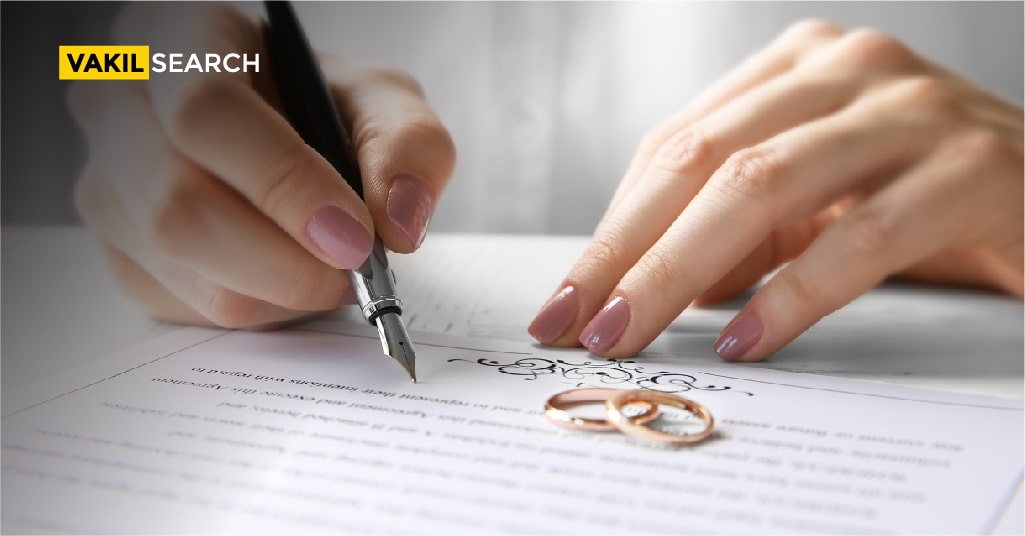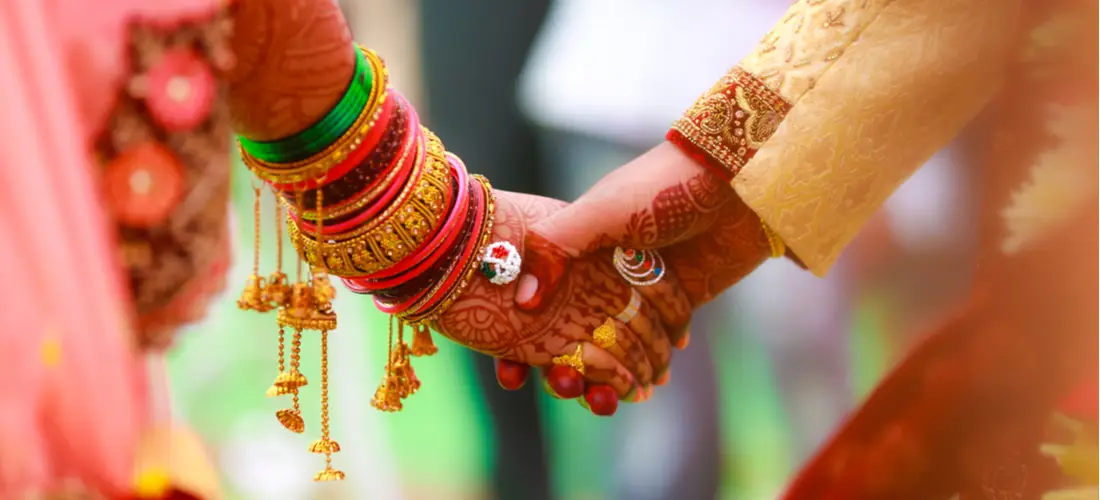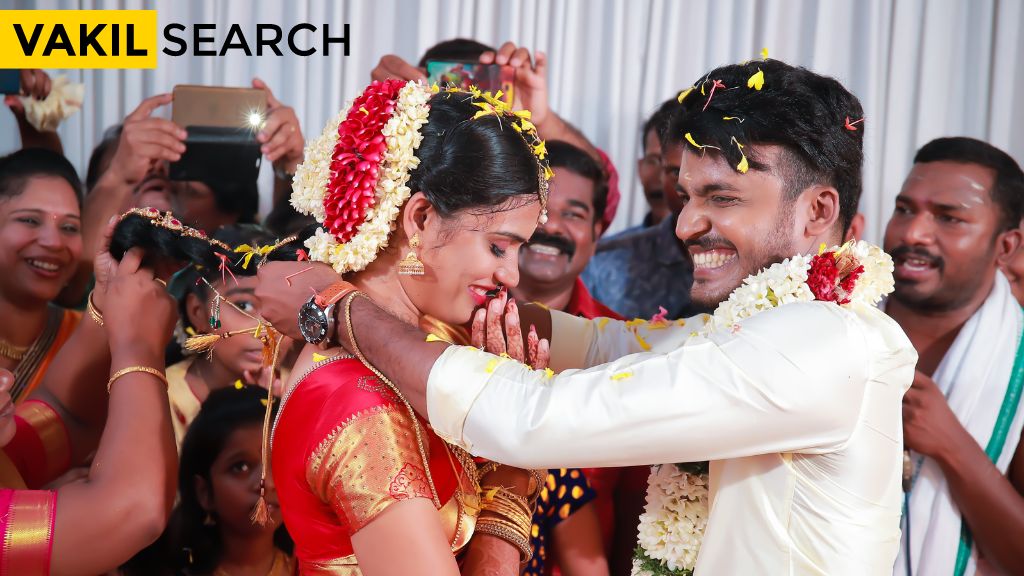Getting married in India? Don't forget to enroll your Wedding! Follow our guidelines to meet the necessary elements and complete the process smoothly.
Registering a Marriage
Marriage registration is an essential legal process that validates the union of two individuals. It provides numerous benefits and safeguards their rights under the law. To register a marriage, certain elements need to be considered. Let’s explore the key elements involved in the process of registering a marriage.
Eligibility for Enrolling a Marriage
To enroll in a marriage in India, certain eligibility criteria must be fulfilled. These requirements ensure that the marriage registration process is carried out in accordance with the law. Let’s explore the key eligibility factors for registering a marriage in India.
-
Age Eligibility:
The legal age for marriage in India is 18 years for females and 21 years for males. Both parties must have attained the minimum age requirement to be eligible for marriage registration. Exceptions may be made for underage marriages in certain circumstances, as per applicable laws.
-
Consent:
Consent is a fundamental aspect of marriage registration in India. Both parties must willingly and freely give their consent to enter into the marriage. The consent should not be coerced or obtained through fraud or undue influence.
-
Marital Status:
To register a marriage in India, both individuals should be unmarried or divorced. If either party was previously married, the previous marriage must be legally dissolved through divorce or the death of the spouse.
-
Prohibited Relationships:
Indian law prohibits marriages between close relatives. Individuals cannot marry their ancestors, descendants, siblings, or anyone closely related by blood or adoption. It is essential to ensure that the proposed marriage does not violate the rules regarding prohibited relationships.
-
Mental Capacity:
Both parties must possess the mental capacity to understand the nature and consequences of marriage. They should be capable of making informed decisions and comprehending the commitments and responsibilities associated with marriage.
Importance of Marriage Registration
- Legal Validity: Registering a marriage provides legal recognition to the union. It establishes the marital relationship as per the laws of the country and ensures its validity. A registered marriage is considered legally binding and provides the couple with legal rights and obligations.
- Protection of Rights: Marriage registration protects the rights and interests of both spouses. It ensures that each partner is entitled to legal rights and benefits associated with marriage, such as property rights, inheritance rights, social security benefits, and insurance coverage. Registration also safeguards against marital disputes by providing a legal framework for resolving conflicts.
- Proof of Marriage: A registered marriage serves as proof of the marital relationship. It provides an official document, such as a marriage certificate, which can be used for various purposes. This includes obtaining visas, opening joint bank accounts, applying for government benefits, and availing spousal rights in legal matters.
- Social Recognition: Marriage registration carries social recognition and acceptance. It validates the commitment and bond between the couple in the eyes of society. A registered marriage is widely acknowledged and respected, fostering social stability and acceptance.
- Prevents Child Marriage and Bigamy: Marriage registration helps prevent child marriage and bigamy. By requiring age and marital status verification, it acts as a protective measure to ensure that marriages are not conducted unlawfully or involve minors. This helps safeguard the well-being and rights of individuals involved.
- Access to Legal Remedies: Registered marriages provide couples with access to legal remedies in case of marital disputes or breakdowns. It facilitates the resolution of issues related to divorce, alimony, custody, and property division in a legal and fair manner.
Elements for Registering a Marriage
Eligibility:
Both parties must meet the eligibility criteria set by the governing authority. This typically includes factors such as minimum age requirements, mental capacity, marital status, and the absence of prohibited relationships. Ensuring eligibility is the first step toward registering a marriage.
Required Documents:
Certain documents are necessary for registering a marriage. These documents may include proof of identity, such as passports or identity cards, proof of age, such as birth certificates, and proof of address. Additionally, documents related to marital status, such as divorce decrees or death certificates, may be required, depending on individual circumstances.
Application Form:
Filling out an application form is a fundamental element of the registration process. The form collects important information about the individuals getting married, including their personal details, addresses, and other relevant information. The application form is typically provided by the marriage registration office or authority.
Witnesses:
In some cases, the presence of witnesses is required during the registration process. Witnesses serve as impartial third parties who can verify the authenticity of the marriage. They may be required to provide their own identification documents and sign the marriage register or other relevant documents.
Registration Fee:
There may be a registration fee associated with the process of registering a marriage. The fee amount varies depending on the jurisdiction and the type of marriage registration (e.g., civil marriage or religious marriage). It is important to inquire about the registration fee and make the necessary payment, if applicable.
Registration Office or Authority:
The marriage registration is typically carried out at a designated registration office or authority. It is important to identify the correct office based on the jurisdiction where the marriage is taking place. Visiting the registration office during designated hours and following the instructions provided is crucial for a successful registration.
Required Documents for registering a marriage
To register a marriage, you need the following documents:
- Proof of Identity: Valid identification documents like passports, driving licenses, or national identity cards.
- Proof of Age: Documents such as birth certificates or age proof documents issued by the government.
- Proof of Address: Official documents showing your current residential address, like utility bills or bank statements.
- Passport-sized Photographs: Recent passport-sized photos of both individuals.
- Marital Status Documents: If previously married, documents proving divorce or death of the previous spouse.
- Witness Documents: Identification documents of witnesses, if required.
Offline Process for Registering a Marriage
Obtain the Application Form:
Visit the marriage registration office and collect the application form for registering a marriage. The form may also be available for download from the official website of the registration office.
Fill Out the Application Form:
Complete the application form with accurate and relevant information. Both individuals getting married will need to provide their personal details, including names, addresses, dates of birth, and other necessary information.
Attach Required Documents:
Gather the required documents, such as proof of identity, proof of age, proof of address, photographs, and marital status documents. Make sure to attach photocopies of these documents along with the application form.
Submit the Application:
Once the application form is filled and the documents are attached, visit the marriage registration office during the designated hours. Submit the completed application form and the required documents to the concerned authority.
Verification and Witness Presence:
The registration office may verify the details provided in the application form and cross-check the attached documents. Additionally, witnesses may be required to be present during the registration process. Make sure to comply with any requirements regarding witness presence.
Pay the Registration Fee:
There may be a registration fee associated with the offline process. Pay the required registration fee as specified by the registration office. Obtain the payment receipt for future reference.
Receive the Marriage Certificate:
After completing the necessary formalities and verification process, the marriage certificate will be issued. Collect the marriage certificate from the registration office. This certificate serves as legal proof of the registered marriage.
Online Process for Registering a Marriage
To register a marriage online:
- Visit the official marriage registration website.
- Create an account with your details.
- Fill out the online application form accurately.
- Upload scanned copies or clear photographs of required documents.
- Review the information and submit the application.
- Pay the registration fee securely online.
- Wait for verification and approval.
- Receive the marriage certificate online or through email/post.
Conclusion
Getting married is a significant milestone in many people’s lives, and it’s essential to understand the Elements for Registering a Marriage to ensure a smooth and hassle-free process. The elements vary by country and jurisdiction, but generally, couples must provide proof of identity, residency, and marriage eligibility.
Vakilsearch is India’s leading legal service provider that can help you with your wedding application elements. Vakilsearch can assist you in gathering all the necessary documents and completing the paperwork required for your marriage registration. We can also guide you through the process, from booking an appointment with the registrar to submitting the application and obtaining the marriage certificate.
FAQ:
1. Is registered marriage good?
Yes, a registered marriage offers legal validity and numerous benefits, ensuring the rights and security of the spouses under the law.
2. Is an unregistered marriage legal in India?
No, an unregistered marriage is not considered legally valid in India. It is essential to register a marriage to establish its legal validity and enjoy associated rights and benefits.
3. What is the time limit to register a marriage in India?
The time limit to register a marriage in India varies by state. However, it is advisable to register the marriage as soon as possible after the wedding ceremony to avoid any complications.
4. Can we register a marriage after 5 years in India?
Yes, it is possible to register a marriage even after 5 years in India. However, it is recommended to complete the registration process at the earliest to avoid any potential challenges or complications that may arise with the delay.
Read more,










